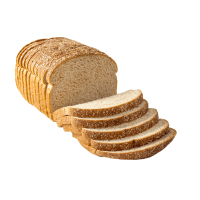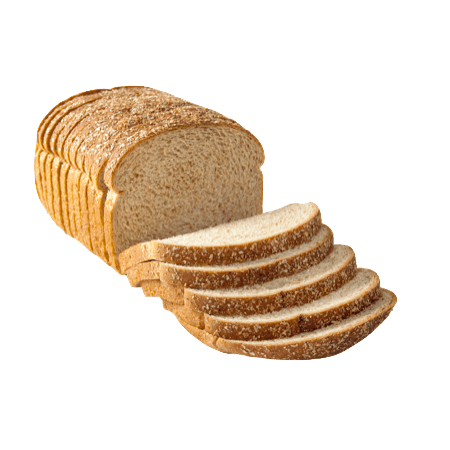Are Low Carb Diets Healthy?
Get the basics on low carbohydrate dieting
Dietary advice seems to rapidly change depending on who you ask, making it difficult to know which advice to follow. The low carb diet has garnered significant attention in recent years for its purported health benefits, but it’s not a new concept. There are many different diets out there that follow low carb guidelines, but are they healthy? Below, we’ll go over the pros and cons of a low carb lifestyle while also exploring the vital role that carbs play in your body.
What Is a Low Carb Diet?
Before we cover the pros and cons of a low carb diet, we want to expand on what exactly it is. Many people who are looking to lose weight opt to reduce their carb intake. However, a truly low carb diet typically restricts the intake of carbohydrates to under 20-50 grams per day. In order to do this without starving yourself, many replace their carb intake with a higher level of protein and fat. The purpose of this is to force the body to burn fat for fuel instead of relying on carbohydrates for energy.
The two main goals for many who embark on a low carb diet is weight loss and diabetes management.
Low Carb Diets for Diabetes Management or Prevention
Diabetes disrupts the body’s ability to properly regulate blood sugar levels. When you ingest carbohydrates, your body breaks them down into glucose which then enters the blood stream. This causes your pancreas to release a hormone called insulin. Insulin helps your cells absorb glucose to use for energy or storage.
For someone who is living without diabetes, blood sugar levels will always remain within a controlled and safe range. However, diabetic’s bodies cannot regulate blood sugar levels in the same way. Therefore, limiting your intake of carbohydrates can help to better regular your blood sugar levels and reduce your need for diabetes medicine.
For many who find out they are pre-diabetic, low carb diets are often recommended as the first step to try and regulate your blood sugar and prevent you from becoming a diabetic.
Check out our great selection of bariatric friendly food options.
Benefits Of Low Carb Diets
- Weight Loss
One of the primary reasons people switch to low carb diets is to help meet their weight loss goals. It is a very effective diet for weight loss in many cases. By reducing your carb intake, your body enters a state of ketosis, where it burns fat instead of relying on carbs for energy. This can lead to significant weight loss, especially at the early stages of the diet.
- Improved Blood Sugar Control
Low carb diets have been shown to help regulate blood sugar levels, which is incredibly important for those with diabetes or insulin resistance. It is also crucial in helping those with pre-diabetes avoid becoming diabetic. By minimizing spikes in blood sugar, low carb eating can help contribute to better metabolic health overall.
- Reduced Risk of Certain Diseases
Some studies suggest that low carb diets can help reduce the risk of cardiovascular disease and metabolic disorders. By promoting weight loss and improving metabolic markers, such as blood pressure and cholesterol levels, low carb eating could have serious long term health benefits.
Potential Risks Associated with Low Carb Diets
- Nutrient Deficiencies
Carbs are not inherently unhealthy. They provide many essential nutrients like fibre, vitamins, and minerals. By severely limiting your carb intake, you could miss out on these vital nutrients, leading to deficiencies and other potential health problems. That’s why continuing to eat whole foods from varied sources is extremely important on a low carb diet.
Additionally, it’s why many people count net carbs as opposed to total carbs when tracking their carb intake. Fibre is considered a carb but remains very important for keeping your body regular and your gut healthy.
- Possible Ketosis Side Effects
While entering a state of ketosis is usually the goal for many low carb or keto diets, it can also lead to some undesirable side effects such as bad breath, fatigue, and digestive issues. Adjusting to a low carb diet can also be tough on a person’s body and cause what is referred to as the “keto flu”.
The keto flu consists of symptoms that usually appear within the first week of making the switch to keto or low carb. These symptoms can include constipation, difficulty sleeping, nausea, irritability, brain fog, fatigue, and headaches. Not everyone will experience all of these symptoms, or even any of these symptoms. These symptoms should not last more than a week and are often the side effect of your body adjusting to the lack of sugar and other carbs. Some people will also experience these similar symptoms when making the switch to any strict diet, such as an elimination diet or anti-inflammatory diet.
If you experience symptoms of keto flu, try not to get discouraged. It should pass as your body adjusts and doing things like drinking more water or eating more often should help symptoms subside. If you feel actual flu symptoms, like fever or feeling very ill, then you should see a doctor as it’s likely unrelated. Tips to getting rid of the keto flu
- Sustainability
Like with many other diets, sticking to your new low carb diet can be difficult for many people. The restrictive nature of the diet may lead to feelings of deprivation and cause strong cravings. If a low carb diet is not properly maintained over time, rebound weight gain is bound to happen.
Remember that a low carb diet, like anything else, is about balance. The good news is that with the popularity of low carb or keto diets, there is now a market for products that never existed before such as low carb bread, low carb tortillas, or sugar free chocolate bars that actually taste good. Snacking and treating yourself to dessert is still possible without breaking your diet, so we encourage you to shop for the low carb version of foods you love so you’re prepared when the craving strikes!
Simple Carbs Vs Complex Carbs
Not all carbs are created equally. Carbs are usually grouped within three categories:
- Starches (complex carb)
- Sugars
- Fiber (complex carb)
Complex carbs are digested more slowly which have a lesser impact on your blood sugar than simple carbs do. This means that even if you continue to eat the same amount of carbs in a day, you can improve the type of carbs you eat.
Try subbing refined carbs such as white bread, pasta, candy, and soda, for more complex carbs like vegetables, fruits, seeds, legumes, nuts, and grains. This can have a huge impact on the calories you consume on a daily basis and how your body feels.
Learn more about the Heart & Stroke’s recommended approach to carbs and how they affect your heart health.
Healthy Carbs & Their Role
While low carb diets certainly have their merits in weight loss and blood sugar control, it’s important to tailor your diet to your specific lifestyle. Carbs play a very important role in supporting various health and fitness goals, especially for athletes or those who have very active lives.
Pre-Workout Fuel
Carbs serve as the body’s primary source of energy during exercise, making them vital for peak performance. Consuming carbs before a workout can provide the necessary fuel to power through intense training sessions or long runs.
Some examples of healthy pre-workout carbs include:
- Whole grains: Foods like oatmeal, whole-wheat bread, buckwheat, brown rice, and quinoa provide complex carbs that release energy slowly, helping to sustain endurance during workouts.
- Fruits: Bananas, apples, and berries are excellent sources of natural sugars and vitamins, offering a quick energy boost before exercise.
Post-Workout Recovery
Following an intense workout, the body requires replenishment to help repair muscle tissue and maximize muscle glycogen replenishment.
Healthy post-workout carbs include:
- Sweet potatoes: Rich in complex carbohydrates and antioxidants, sweet potatoes are an ideal choice for replenishing glycogen stores and promoting muscle recovery.
- Legumes: Lentils, chickpeas, and beans are nutrient-dense sources of carbs and protein, making them an excellent option for post-workout meals or snacks.
Lifestyle Makes a Big Difference
In the debate over low-carb vs high-carb diets, the key lies in finding the right balance that works for you. All bodies and lifestyles are different and have different requirements. While low-carb diets can be very effective for weight loss and blood sugar control, they may not be suitable or sustainable for everyone.
It’s important to recognize the value of healthy carbs in supporting your overall health and fitness goals, particularly for those who live an active lifestyle. By incorporating nutrient-rich carbs like whole grains, fruits, and vegetables into a balanced diet, individuals can enjoy the benefits of sustained energy, improved performance, and enhanced recovery.
In conclusion, the healthiest approach to eating is one that emphasizes whole, minimally processed foods and allows for flexibility and moderation. Whether you decide to go low carb or not, it’s important to remember that carbs are not the enemy – they’re an essential part of a well-rounded diet that nourishes both body and mind.
As you embark on your nutritional journey, we recommend following the guidance of health care professionals who are familiar with your specific body, your activity level, and any possible health concerns. Additionally, always listen to your body. Your body will give you cues to help you figure out what foods help you feel and look your best.
More Low Carb Lifestyle Articles
Top Snack Foods
Discover the ultimate guide to keto and low carb snacking! We’ve compiled our favourite snacks and sweets that are both delicious and diet friendly! From chocolatey treats to savoury bites, we’ve got something for everyone!
Zero Carb Foods
Maintaining a low carb diet can be challenging, but with the right foods, it doesn’t have to be. This article is packed with product recommendations to help you stay on course. Discover how to fully embrace a keto or low carb diet with delicious meals that satisfy every craving.
Is Going Low Carb Healthy?
Interested in making the switch to a low carb diet but worried about adverse health effects? Learn more about the role that carbs play in your diet and how they affect your overall health and fitness goals to determine if a low carb diet is the right choice for you.
30 Low Carb Foods
Looking for delicious and satisfying meals that fit into your low carb lifestyle? Explore our list of 30 healthy low carb foods, including pantry staples and specialty products.
Getting Started with Keto
The keto diet, as it is commonly known, has surged in popularity due to the dramatic results that people have experienced. However, there remains some skepticism about how it works from those who are new to high-fat and high-protein eating. Learn more about this diet here.





















